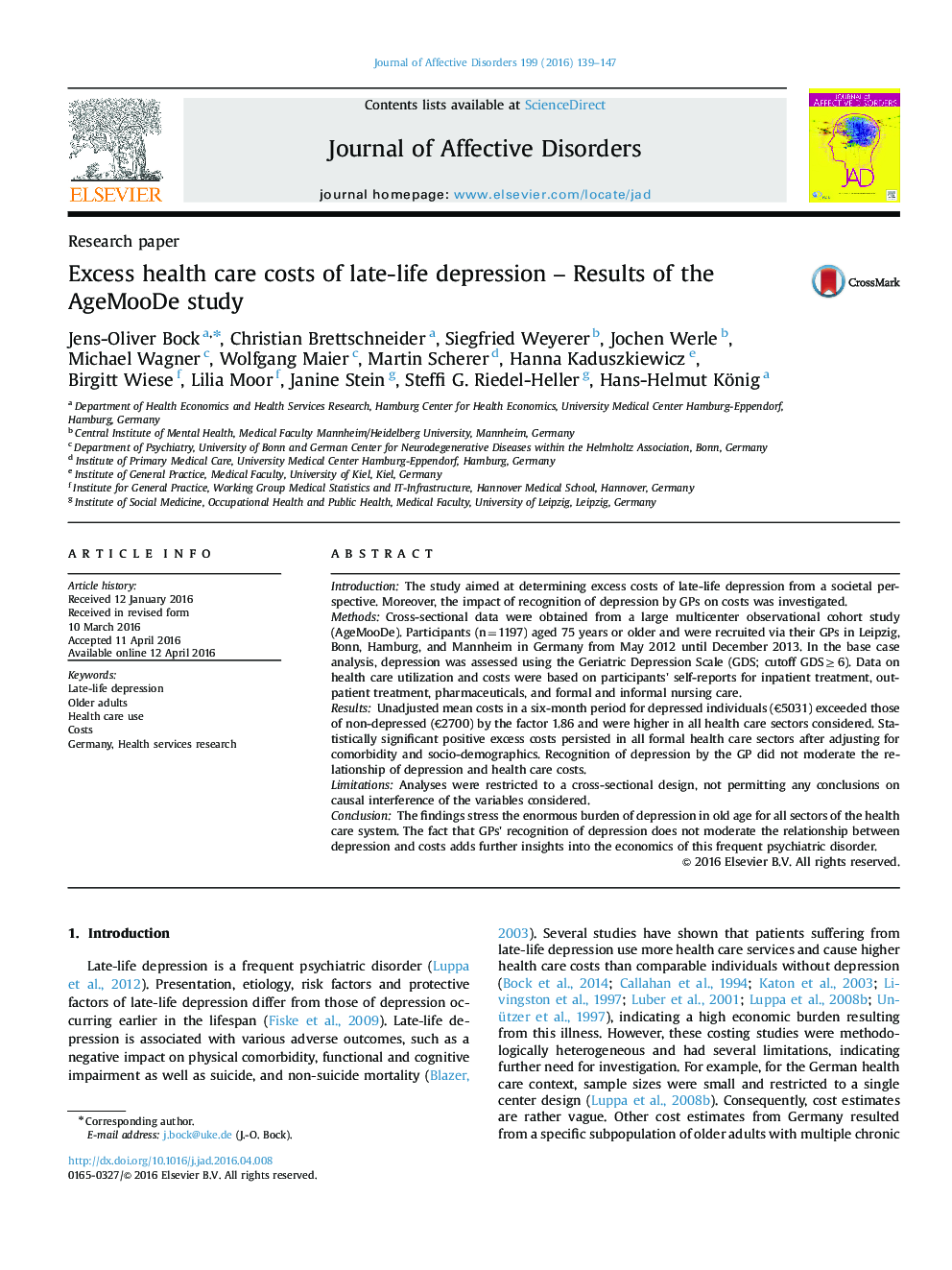| Article ID | Journal | Published Year | Pages | File Type |
|---|---|---|---|---|
| 6230165 | Journal of Affective Disorders | 2016 | 9 Pages |
â¢Health care costs of patients with and without late-life depression were compared.â¢Costs of participants with depression exceeded those of non-depressed.â¢Excess costs existed even after controlling for comorbidity.â¢Utilization of mental health services contributed only little to excess costs.â¢Recognition by the GP did not moderate the relationship of depression and costs.
IntroductionThe study aimed at determining excess costs of late-life depression from a societal perspective. Moreover, the impact of recognition of depression by GPs on costs was investigated.MethodsCross-sectional data were obtained from a large multicenter observational cohort study (AgeMooDe). Participants (n=1197) aged 75 years or older and were recruited via their GPs in Leipzig, Bonn, Hamburg, and Mannheim in Germany from May 2012 until December 2013. In the base case analysis, depression was assessed using the Geriatric Depression Scale (GDS; cutoff GDSâ¥6). Data on health care utilization and costs were based on participants' self-reports for inpatient treatment, outpatient treatment, pharmaceuticals, and formal and informal nursing care.ResultsUnadjusted mean costs in a six-month period for depressed individuals (â¬5031) exceeded those of non-depressed (â¬2700) by the factor 1.86 and were higher in all health care sectors considered. Statistically significant positive excess costs persisted in all formal health care sectors after adjusting for comorbidity and socio-demographics. Recognition of depression by the GP did not moderate the relationship of depression and health care costs.LimitationsAnalyses were restricted to a cross-sectional design, not permitting any conclusions on causal interference of the variables considered.ConclusionThe findings stress the enormous burden of depression in old age for all sectors of the health care system. The fact that GPs' recognition of depression does not moderate the relationship between depression and costs adds further insights into the economics of this frequent psychiatric disorder.
